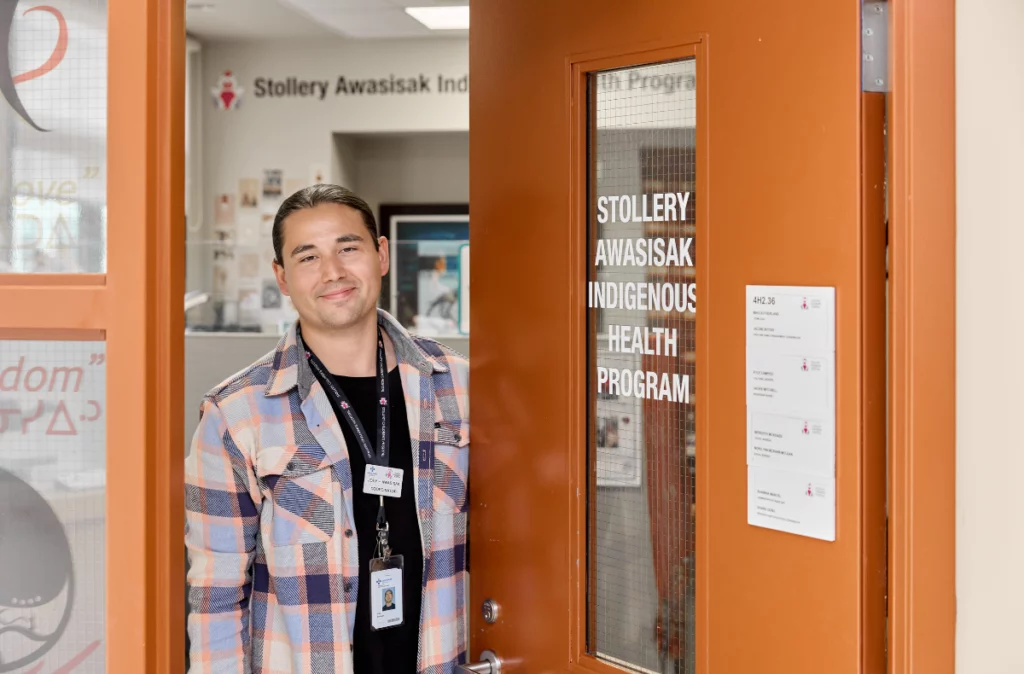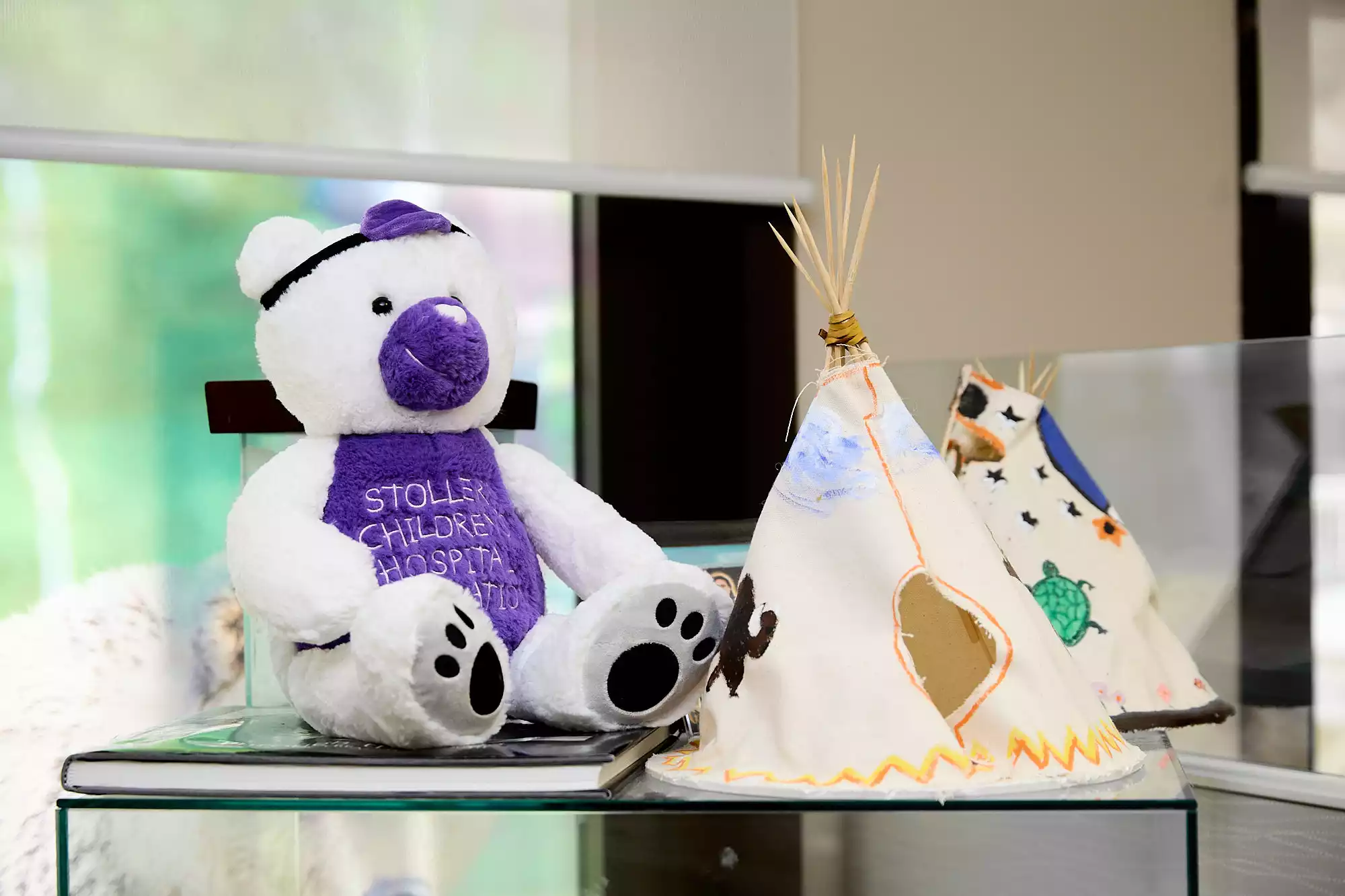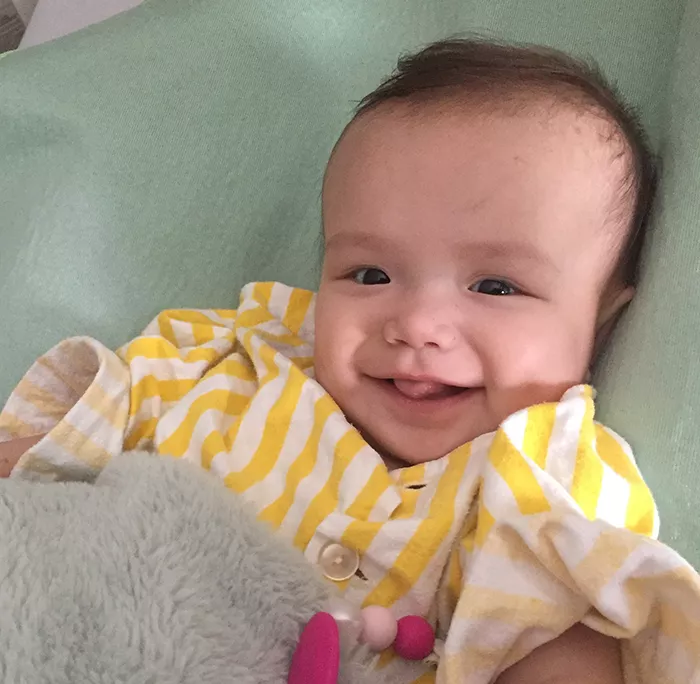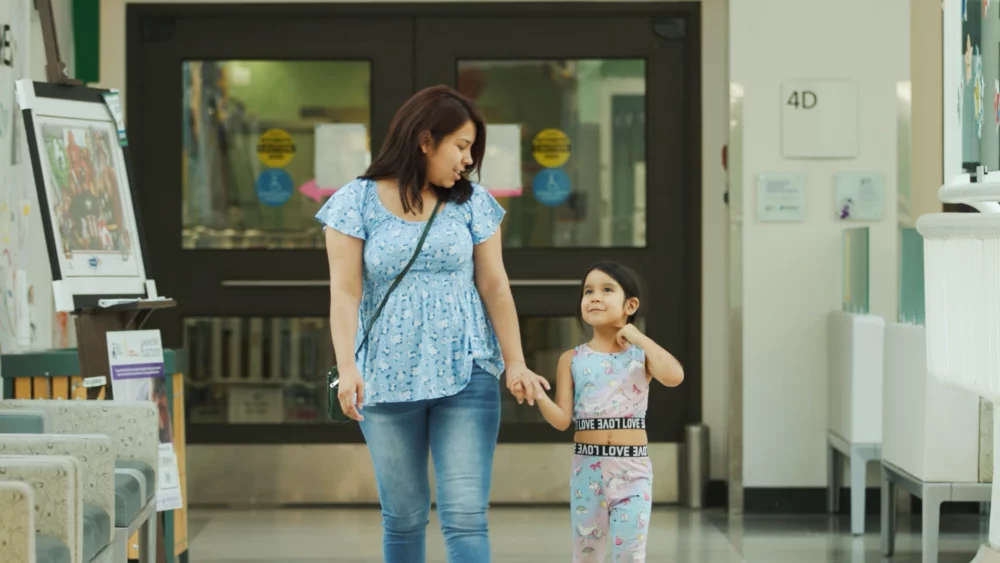Building bridges
The donor-funded Awasisak Indigenous Health Program is the only Indigenous pediatric health program in Canada.

Imagine you live in the remote northern Alberta First Nations community of Fox Lake, more than 800 kilometers from Edmonton. Your child is sick, and the local nursing station has advised you to take your child to the Stollery Children’s Hospital for the care they need. In this community, your summer transportation option is by barge, which costs $50 each way. In the winter, the option is to travel by ice road. The only other alternative is to book an expensive flight to Edmonton.
Once you’ve figured out your travel arrangements, you arrive at the Stollery Children’s Hospital, a building larger than any you have ever seen. You’re overwhelmed by the noise, by the number of people and by the large space you need to navigate with your family. Then, when your child is admitted, you struggle to understand medical terminology that isn’t in your first language.
This is a reality for many Indigenous families in Alberta who have children with complex medical needs.
With nearly 30 per cent of Alberta’s Indigenous population under the age of 14, the province has one of the youngest and fastest-growing Indigenous populations in Canada. Indigenous families, particularly those in rural communities, face unique and stressful challenges when their children need to visit or stay at the Stollery. This highlights why the Awasisak program is crucial for improving Indigenous children’s health in northern Alberta and beyond.
The Awasisak Indigenous Health Program is the one and only Indigenous pediatric health program in Canada. The program aims to provide targeted support to Indigenous children and their families, especially those living in rural and remote communities.

The goal of the Awasisak program is to build bridges for Indigenous children’s health. It’s a unique example of honouring and implementing the Truth and Reconciliation recommendations and the child-first approach to improving health-care access through greater community engagement, outreach and consultation. The experts on the Awasisak team improve the experience of patients and families by weaving Indigenous language, culture and tradition into specialized, family-centred care.
Last year, the Stollery Children’s Hospital Foundation invested $545,673 in the Awasisak program, which helped serve 496 families from 97 different communities across four provinces and all three territories. Support included 1,182 in-person visits, 777 virtual visits or phone calls and 2,380 consultations to service providers. The care provided by the Awasisak team extends beyond the walls of the Stollery, too. This can involve contacting rural pharmacies to make sure there is a plan to carry the child’s necessary prescriptions or liaising with the nearest health-care provider to arrange for home-care or follow-up appointments in the child’s community.
Without donor support for the Awasisak program, Indigenous patients and their families would be missing a critical link in the care that they deserve.
What types of targeted support does the Awasisak program provide?
- Daily contact with patients and families.
- Culturally safe space for families.
- Assistance with navigating the Hospital.
- Cultural events and ceremonies.
- Discharge planning (prescriptions, supplies, home-care).

